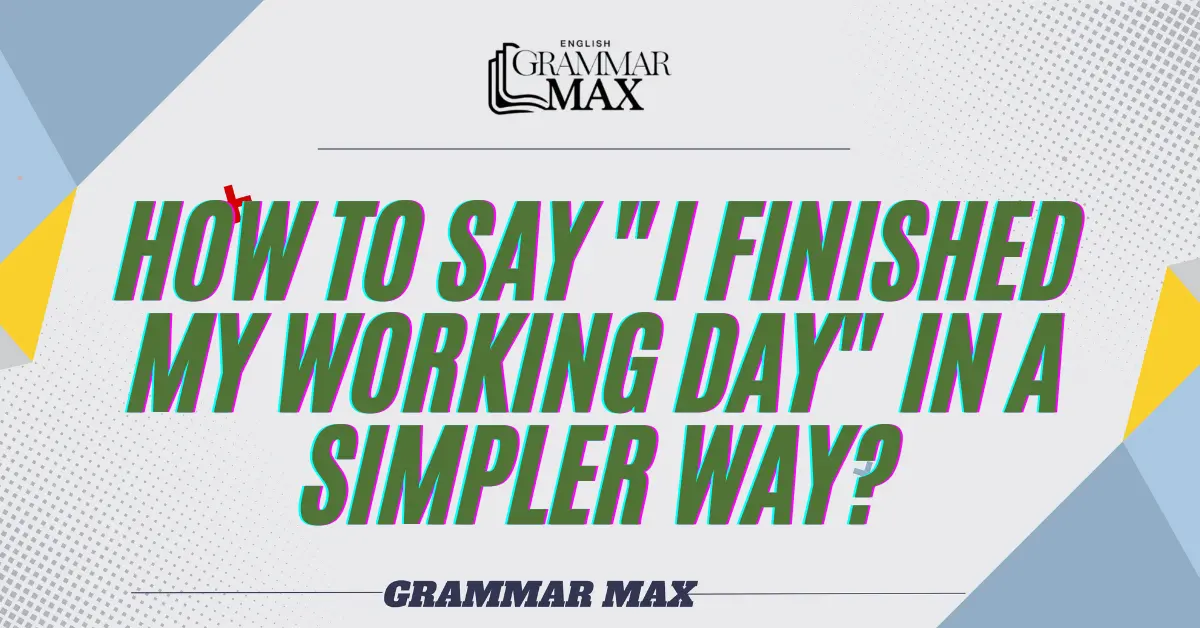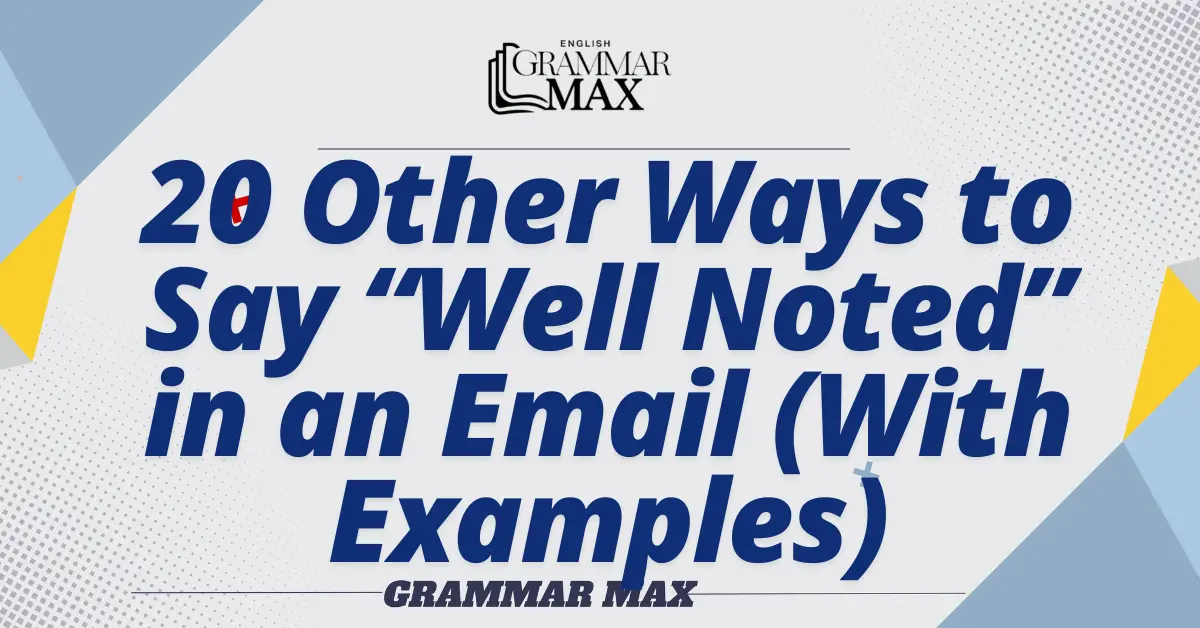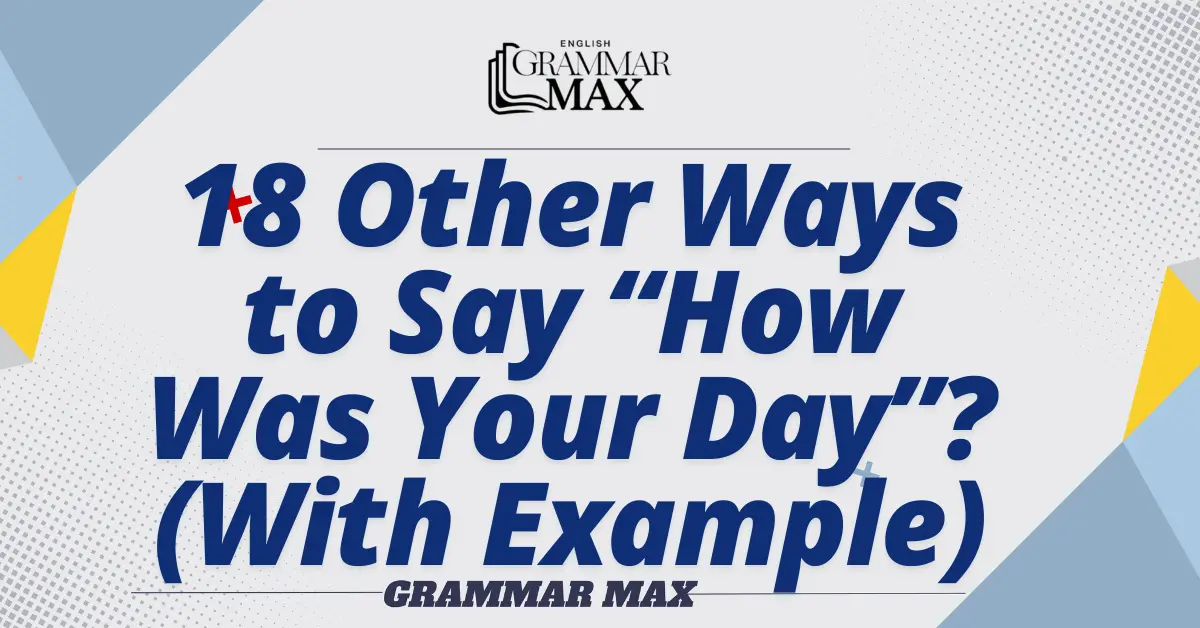“I finished my working day” is a phrase many of us use to announce the completion of our workday. Whether you’re letting someone know you’re done with work or just marking the end of your day, there are numerous simpler alternatives to convey this idea.
How to say “I finished work” in more concise and natural ways. From casual conversations to professional emails, you’ll discover suitable phrases, their meanings, and examples of use. Let’s dive into these easier alternatives to enhance your vocabulary!
15 Synonym Phrases for “I Finished My Working Day”
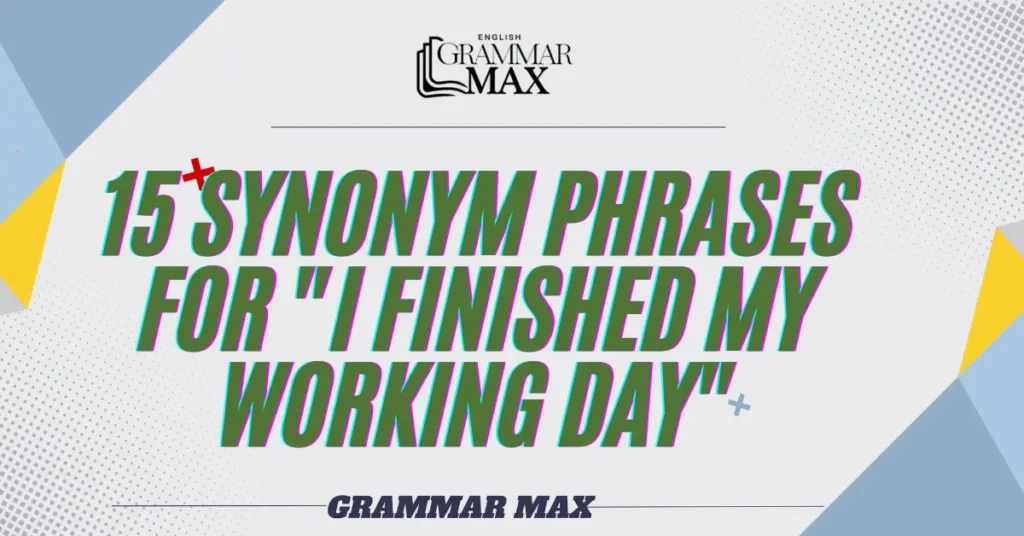
You can use these ways instead to say I Finished My Working Day:
Professional and Casual Alternatives
- Completed workday
- Wrapped up the day
- Workday done
- End of shift
- Day’s end
Casual Phrasing
- Just got off work
- Heading home
- Leaving from work
- Clock strikes five
- Home in no time
Additional Alternatives
- Just leaving
- Just punched out
- Knocked off work
- Get a beer out
- Be there in 10
Completed Workday
This phrase emphasizes that all tasks for the day have been finalized and completed. It’s a clear and professional way to announce the end of your responsibilities.
It conveys a sense of closure and readiness to move on to the next phase of the day, whether that’s personal time or preparation for future work.
Example:
Email to colleague:
“Hi Alex, I just wanted to inform you that I’ve completed my workday. Let me know if there’s anything urgent before I sign off. Thanks!”
Wrapped Up the Day
This phrase suggests that you have finished your tasks with a sense of completeness. It can imply that you’ve tied up any loose ends before stopping work.
It gives a feeling of neatly concluding the day’s activities, often used when transitioning from work to leisure.
Example:
Text message to a friend:
“Hey Taylor, I’ve wrapped up the day. Ready to grab dinner whenever you are!”
Workday Done
This is a concise and informal way to indicate that the work for the day is finished. It’s often used in casual or quick conversations.
The phrase is straightforward, signaling the end of work without any additional context or formal tone.
Example:
Message in a group chat:
“Workday done! Anyone up for a movie tonight?”
End of Shift
This phrase is often used in roles with scheduled working hours, such as healthcare or retail. It marks the official conclusion of the assigned work period.
It’s practical and functional, focusing on the structured end of a working shift or time slot.
Example:
Conversation with a supervisor:
“I’ve reached the end of my shift. Let me know if I should pass on anything to the next team.”
Day’s End
This phrase is slightly more poetic, signaling the natural conclusion of the day, including work. It adds a tone of reflection or relaxation.
It’s versatile, fitting both formal and casual conversations, especially when talking about transitioning to leisure.
Example:
Social media post:
“Finally reached the day’s end. Time to relax with a good book!”
Just Got Off Work
This is an informal way to express that you have recently finished your work for the day. It’s commonly used in casual conversations.
The phrase suggests immediacy and emphasizes that you’re done with work and free for the evening.
Example:
Phone call to a family member:
“Hi Mom, I just got off work. I’ll stop by the store on my way home.”
Heading Home
This phrase communicates that you’re on your way home after completing your work. It suggests that the day’s responsibilities are done.
It’s a simple and relatable expression, often used to give updates about your current location or status.
Example:
Quick text to a friend:
“Heading home now. Let’s meet in 30 minutes?”
Leaving from Work
This phrase indicates that you are physically exiting your workplace. It is clear and direct, making it suitable for both formal and informal settings.
It shows that the workday has officially ended, and you are moving on to other activities.
Example:
Email to your manager:
“I’m leaving from work now. The report you requested has been sent to your inbox. Let me know if there’s anything else you need.”
Is it Professional to Say: I Finished My Working Day?
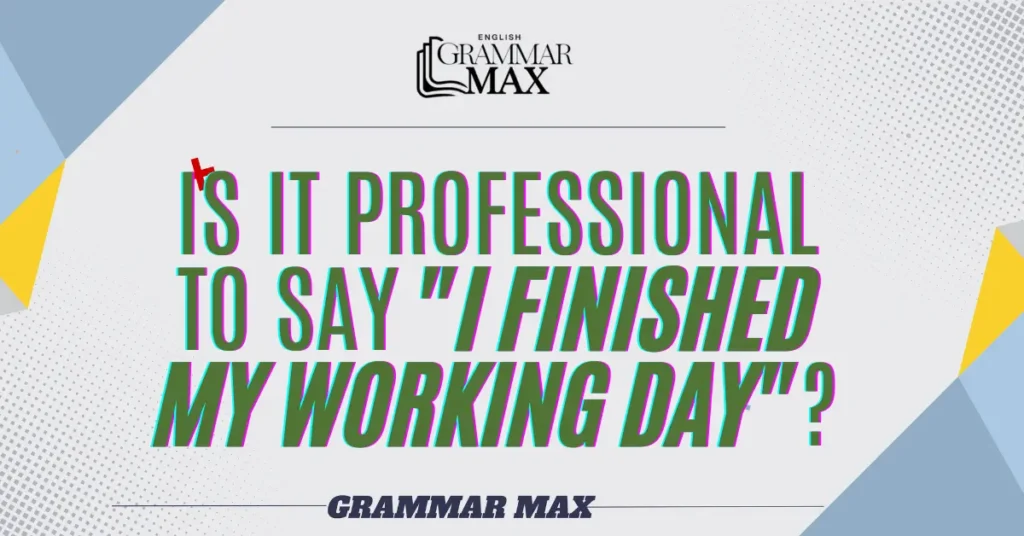
Saying “I finished my working day” can be professional, depending on the context. In casual environments or informal emails, it communicates clearly and concisely. However, in more formal workplaces, a phrase like “I have completed my tasks for the day” may sound more polished.
Choosing your words appropriately ensures professionalism while maintaining clarity. The phrase is simple, but its tone might not always match the workplace’s culture. It’s important to consider your audience and setting when deciding how to phrase the end of your workday.
Pros
- Clear and direct communication.
- Universally understood by all audiences.
Cons
- May sound too informal in formal settings.
- Lacks a polished tone for professional correspondence.
Frequently Asked Questions
How do I say I finished my working day?
You can say “I wrapped up the day,” “workday done,” or “end of shift” depending on the context, whether casual or formal. These phrases express task completion clearly and concisely.
How do I say I completed the work?
Use “Task completed,” “I’ve finished the assignment,” or “Work successfully done” to indicate your accomplishment in a professional or casual tone.
How to say finishing my duty?
Phrases like “Duty fulfilled,” “Tasks concluded,” or “I’ve completed my responsibilities” are suitable for professional or formal communication.
How to say I finished work?
Try using “I just got off work,” “Work is done,” or “Clocked out” for informal contexts and “Tasks completed” in professional settings.
Conclusion
“I finished my working day” can be expressed in countless ways, each suited to different contexts and tones. From simpler terms like “workday done” to more casual alternatives like “just got off work,” these phrases help you convey the same message with clarity and variety.
Next time you’re wondering how to say finishing my duty or need an easier alternative, try one of these options. Enhancing your vocabulary with diverse expressions makes your communication more engaging and effective. Experiment with these phrases and find the ones that best fit your style!

William Henry is a writer for Grammar Max, a blog that focuses on synonyms and phrases. He loves exploring the quirks of the English language and enjoys helping readers improve their vocabulary. William’s articles are easy to read, fun, and full of useful tips for anyone looking to better understand and use English. Whether you’re a student, a professional, or just someone interested in language, William’s writing on Grammar Max makes learning about words and their meanings simple and enjoyable.

